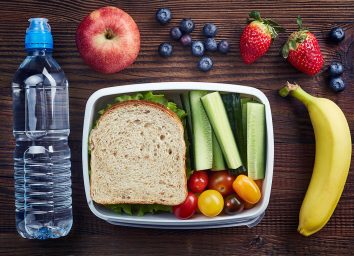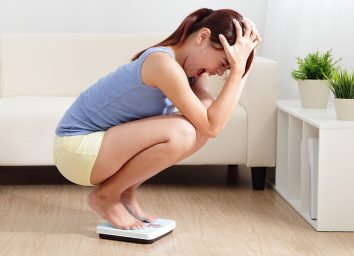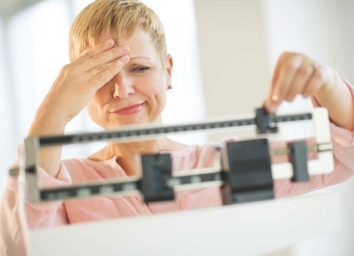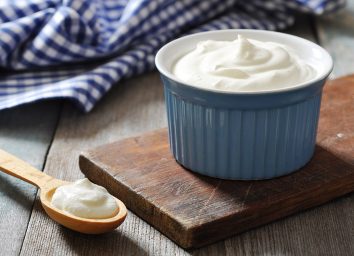I Kissed Dieting Goodbye, and Finally Lost 20 Pounds. Here's Why.
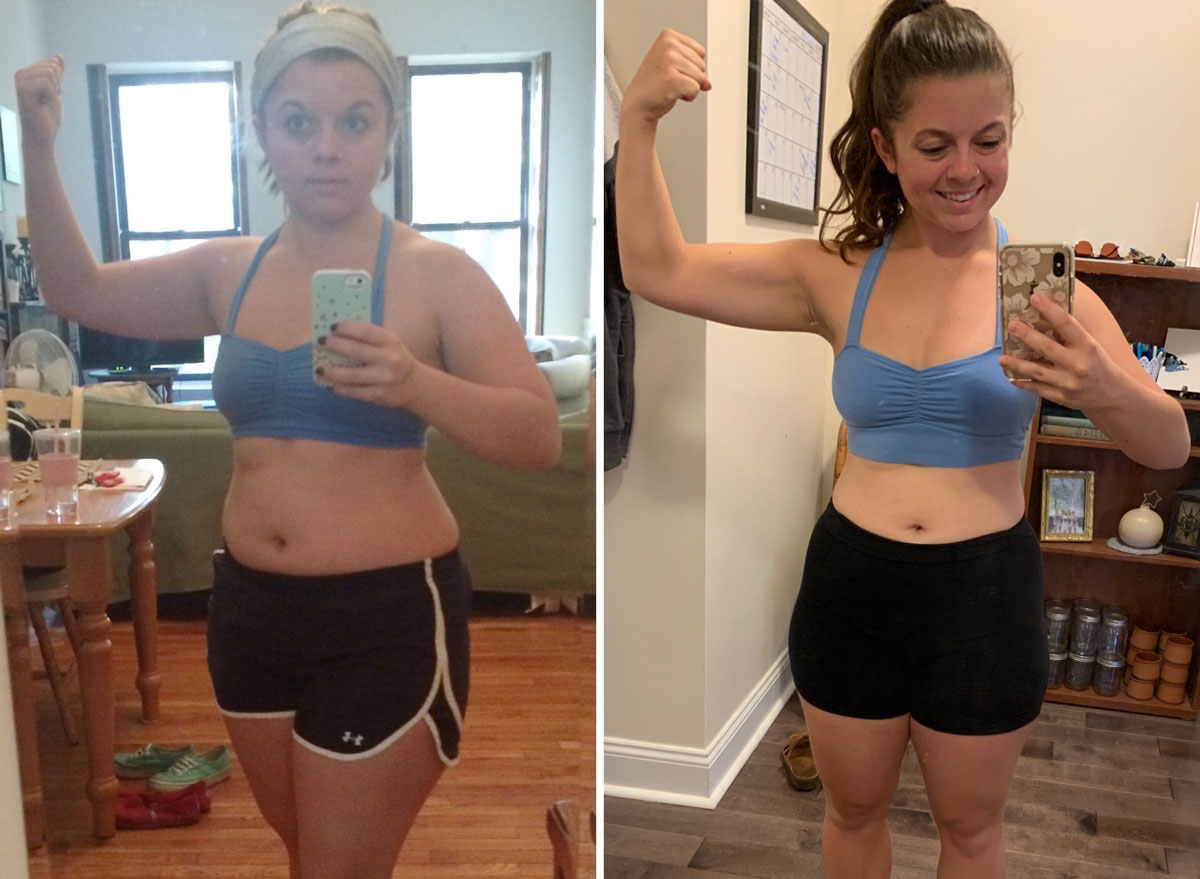
It was December 31, 2018, and I was officially the heaviest I had ever been, and I was completely baffled. I was working out every single day, following diet after diet after diet, and yet somehow I still wasn't able to lose the weight. I started taking probiotics thinking that maybe it was my gut or my metabolism just not working properly. But when I finally sucked up my pride and got the help I needed, I realized what the true problem was all along: Dieting.
I left dieting culture behind
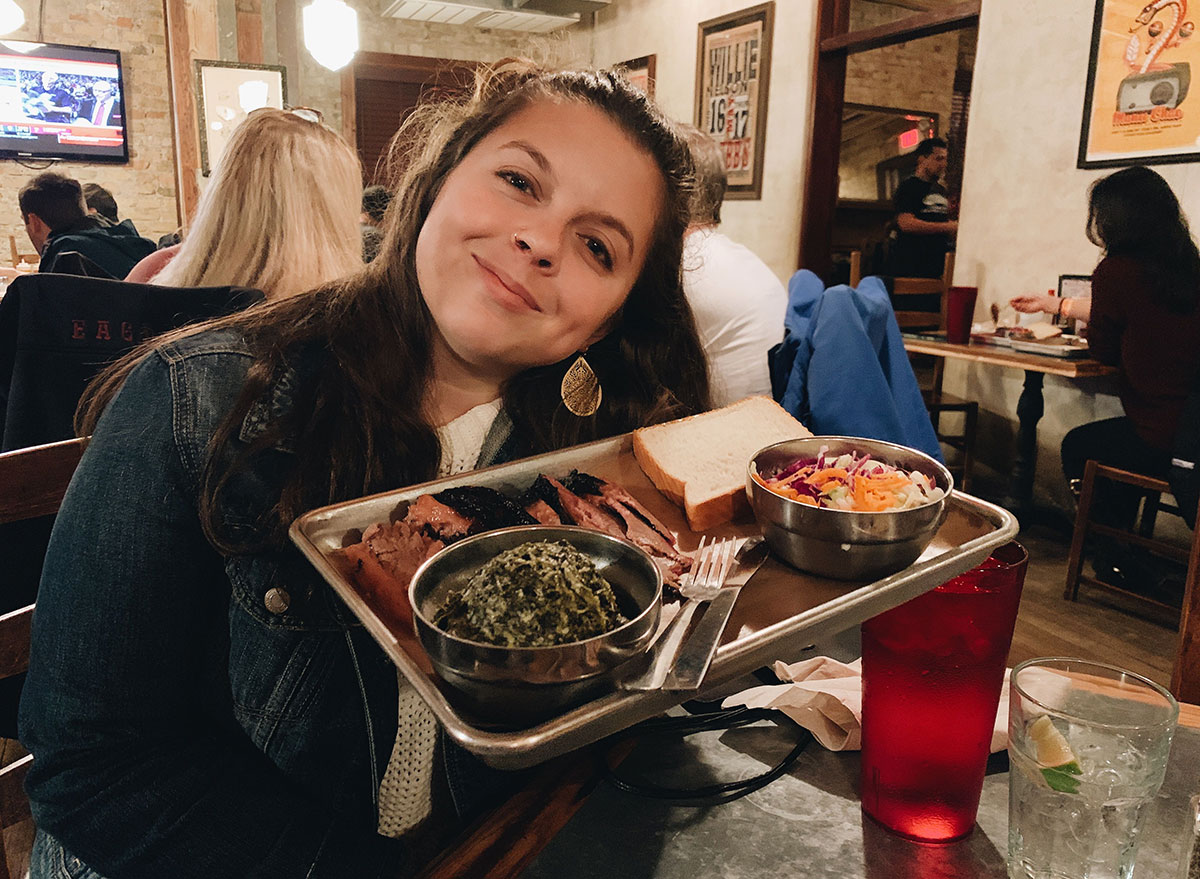
Our world has been completely hypnotized by diet culture. Dieting culture has sprung up from this idea that in order to lose weight, you have to restrict yourself on a particular diet. It's where fad and commercial diets thrive, especially because the weight loss market has hit a record-high worth $72 billion annually.
Just because it's making money doesn't mean it's healthy for people, yet somehow we have grown to believe that if we try this one diet—whatever it may be—it will finally fix us. So we throw more money at the industry and we swear off our favorite foods, only to slip up and binge on those foods you missed, and start all over again on Monday.
This was constantly my life. I tried every dieting gimmick possible: Keto, paleo, vegan, Weight Watchers, and whatever random dieting plans that sounded feasible on Pinterest. I even tried the Special K diet, which yes, you are to consume mostly Special K products. One can only have too many bowls of Special K before going absolutely crazy.
When I first started dieting, I could lose the weight quickly, but it always came back with a vengeance. Soon, I wasn't even able to lose weight at all. It was a vicious cycle, and my body was taking the full brunt of it. I worked out every single day to try and simply maintain where I was at, and if I ever had to skip a day, I would be consumed with guilt. Even when I was sick in bed, I would force myself to get up and workout. I felt utterly enslaved to it all.
I decided to learn about my body
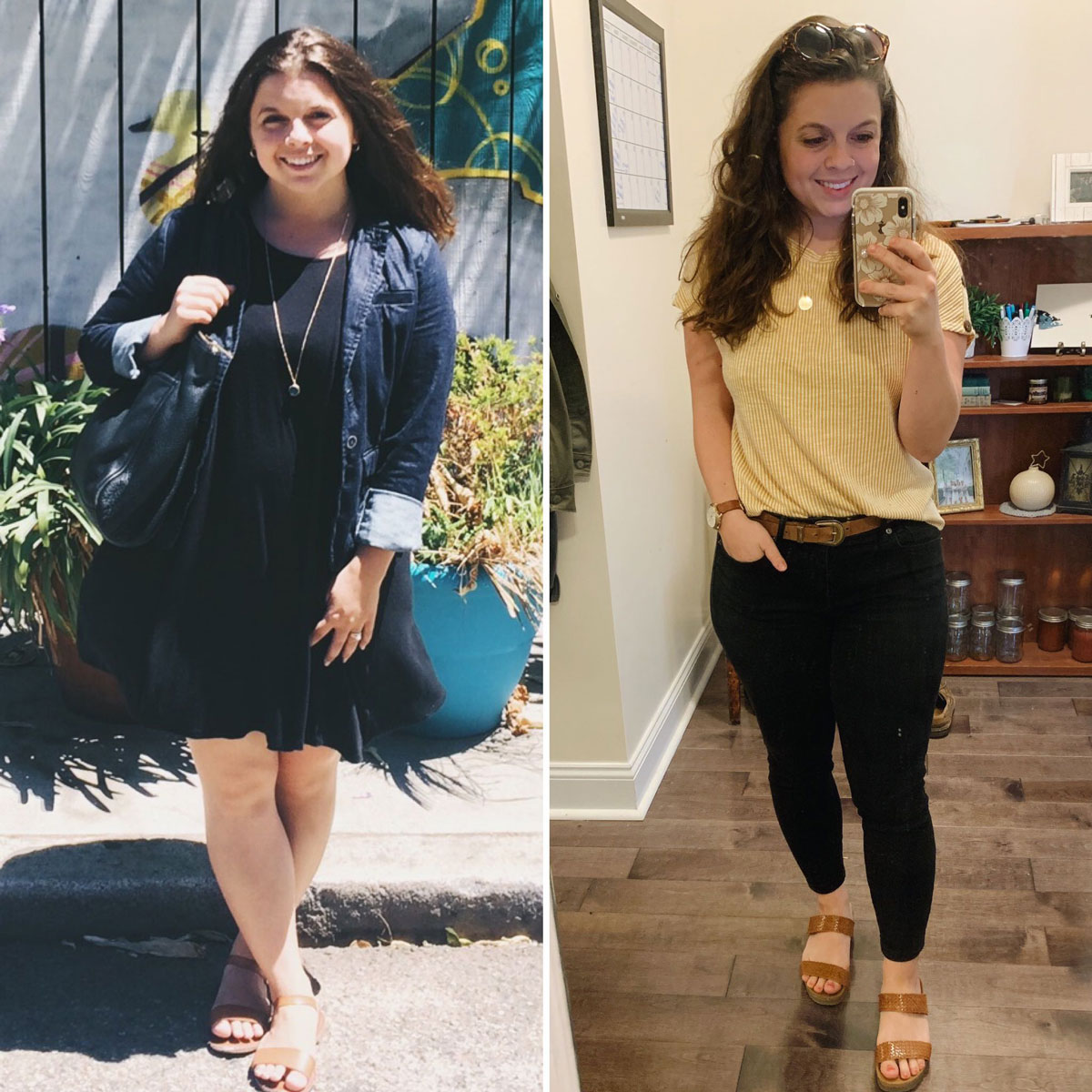
I was sick of having to try and figure all of this out on my own. The world is full of incredible resources on learning about your body, but I knew I needed to actually connect with a dietitian about all of this. Yet, with the small budget I had, I couldn't afford a personal nutritionist at the time. So I signed up for a course held by Rachel Paul, RDN and founder of The College Nutritionist.
Her online program allows you to "learn how to look & feel fantastic in your body." I had been following Rachel on Instagram for a few months at that point, and I was intrigued by her online program. When I finally joined and took her courses, I felt a sudden shift in my understanding of the food I was eating.
Rachel taught me that no food should ever be off-limits. She taught me how I should eat the foods I love, and just learn how they will fit nutritionally into a plan that will work for my body's needs.
"This is of course not true for anyone, but if something seems off-limits and that 'you can't have it,' then it becomes this draw to eat it because it's this 'forbidden' food and we want to indulge in it," said Paul in an interview. "So we end up eating too big of a portion of that food and we feel guilty about that, and end up eating more of those bad or off-limit foods, which can often lead to a binge-type behavior."
This concept originated in the book Intuitive Eating, which is part of the reading curriculum for Rachel's course. All in all, this book teaches you how to eat intuitively. To eat intuitively, one has to really be in-tune to their body's satiety cues, and to never deny oneself of a certain type of food. It helps you to have that final "it's not you, it's me" moment with dieting culture, and break up for good.
My view on food completely shifted, so instead of denying myself the foods I absolutely loved for so long, I got in my car and drove to the store.
I went out and bought ice cream
I'm sure I was quite the sight in the frozen food section at Target. I was giddy with delight, and I had no idea which ice cream to buy. Having a bowl of ice cream at night is one of my favorite childhood memories, so I was beyond ecstatic to fit ice cream back into my daily routine.
"What I think is most important is that you, or any person, really enjoys their life in all aspects" said Paul. "Every meal and snack should be really enjoyable. So if you love the taste of chocolate, let's keep that in the meal plan because you're really going to enjoy it."
Even if we want to deny it, the science behind nutrition is clear. Learning about calories and proper nutrition is good, because it helps us to find out what our bodies really need. For me, I feel fully satisfied when I eat around 1,450 calories a day. I know it's very specific, but it's what I have learned about myself. So when I factor in around 150 calories for a scoop of ice cream every night, it helps me to feel fully satisfied and content. I am no longer depriving my body of the foods I love, but instead, only filling my meals with things I actually enjoy eating. And in no way did I ever feel like I was depriving myself, like every other dieting gimmick I tried.
Please remember that everyone's body, even their taste buds, are incredibly different. I am exactly 5 feet tall, so a calorie budget of 1,450 is pretty accurate for my size (and, more importantly, works well for my satiety needs). This is different for everyone, so the last thing I want you to do is walk away thinking that this needs to be your number as well. Instead, you need to find the proper calorie number for you, one that makes you feel fully satisfied and separates you from the need to deprive yourself with dieting.
I only eat the foods I love
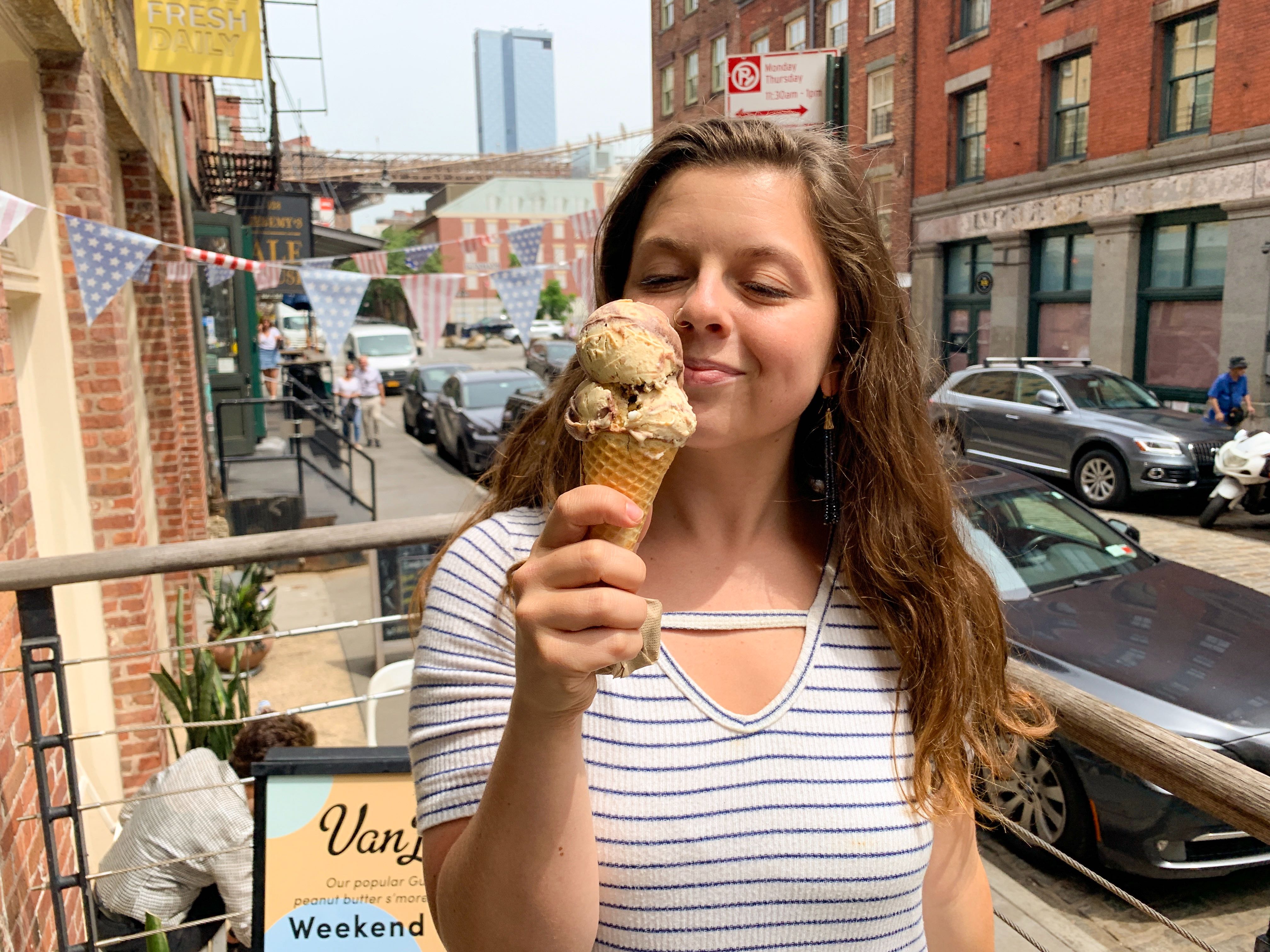
Ice cream is my top favorite food of all time, followed closely by bagels, so of course they are part of what I eat on a regular basis. However, delicious desserts and carbs aren't the only foods I love. My Intuitive Eating journey has taught me to actually list out all of the foods I love—including vegetables!
For me, this was revolutionary. I don't have to love all of the "health" foods out there simply because the world is telling me they're healthy. So I stopped buying quinoa, lentils, and coconut oil because I didn't love them like I do other foods. I made a long list of the foods I do like, and planned my meals around that. Brussels sprouts, bell peppers, and green beans are almost always on the weekly lineup. Rice and I finally had a much-needed farewell.
"You become kind of a food snob," said Paul. "So you're really only eating the foods that you love, and not wasting it on any kinds of foods that don't bring you joy. Your happiness is the most important thing."
I love looking back at my list and planning meals around it. It makes me excited to eat the foods that I truly enjoy eating, instead of filling my stomach with foods that I only kind of like (or worse, eat food that people tell me I should be eating, but I absolutely hate). I only take cookies if I really feel like having one, because I know I would much rather have ice cream later. I choose wine over cocktails, flour tortillas over corn, and real butter over margarine. Not because I think they're healthier, but simply because I like eating them.
When I stopped depriving my body of my favorite foods, I no longer had a desire to reach for those "guilty" foods in my life. In fact, those foods no longer had a sinful label. Instead, they are labeled under my own opinion. I'm officially back in control, and it's exhilarating.
I listen to my body's satiety cues

I no longer punish myself for feeling hungry, but listen to what my hunger is really saying instead. This was a huge trial-and-error for me as I started to learn how to intuitively eat, and it's still something I'm learning to this day. During this process, I have learned that if I naturally stop eating something, then I'm usually full. I shouldn't force myself to keep eating simply to "clean my plate" or because it's a waste of food. Or even because it just tastes good! Because honestly, if I overeat, I feel incredibly sick to my stomach, and that's a feeling that I try to avoid at all costs.
"If you eat slowly, if you take a good 20 minutes to eat your food, you will start to experience your body's hunger and fullness cues," said Paul. "Oftentimes, those fullness cues means your stomach feels full, but you're not getting to the point where you're stuffed and sleepy. You'll probably have a feeling of nothingness, a lot of people talk of nothingness—neither hungry nor full—and that's kind of a good sense that you're on the road that you're being complete with your meal. Again, give yourself a trial-and-error period. You don't have to do it perfectly right the first time to figure out what your hunger and fullness cues are."
I also learned that I feel my best when I eat four meals a day: Breakfast, lunch, afternoon snack, and dinner. That planned afternoon snack time has helped me to stop any binging like I did when I got home from work, which usually would happen while I was cooking dinner. But now that I have some kind of snack in the afternoon—usually a nice healthy fat, like peanut butter with banana—I feel satisfied until dinner time.
"I do think it's a good idea to have some amount of time in between meals to allow your body to get hungry again," said Paul. "I think a lot of people are afraid of getting hungry, but you don't have to be afraid. It should be a normal part of the day. You can eat again, [because] nothing is off-limits. You can eat foods that you love again. Eating should be an enjoyable experience."
I get on the scale daily
Like any other normal human whipped by dieting culture, I was afraid of getting on the scale. This was all due to the fact that I wrapped up my identity in what the number said. If I was down, I was "doing good" and I felt proud of myself. If I was up, I would beat myself up mentally and would probably skip my next meal. In reality, weight fluctuations are incredibly normal.
"[Weight fluctuations] are completely normal," said Paul. "The weight gain could mean you ate later in the day than usual. You haven't gone to the bathroom yet. You have your period or you're two weeks out and you're ovulating. You had something salty, so maybe you're retaining a little extra water. Or it's just your body, right? It just happens."
When I finally understood that weight isn't always the same, I started getting on the scale every day to watch the fluctuations. I'm telling you right now, it changes every day. It changes every hour. Between all of the internal body functions—digesting food, menstruating, even stress—your weight fluctuates normally. When it was no longer about losing weight, I was able to finally understand my fluctuations and what foods caused extra bloat or not. For example, a night of having beer and French fries does cause bloat, so there's no reason to beat myself up the next morning. I'll just sit in the gloriousness of having enjoyed such a delicious meal.
When I started listening to my body's satiety cues, and when I stopped wrapping up my identity in the scale numbers, I finally lost the extra weight.
Let me be clear: Becoming an intuitive eater does not mean weight loss. It only happened to me because I learned about food and how much I was overeating, and how much food I really needed in order to feel satisfied and full.
My health is not my identity
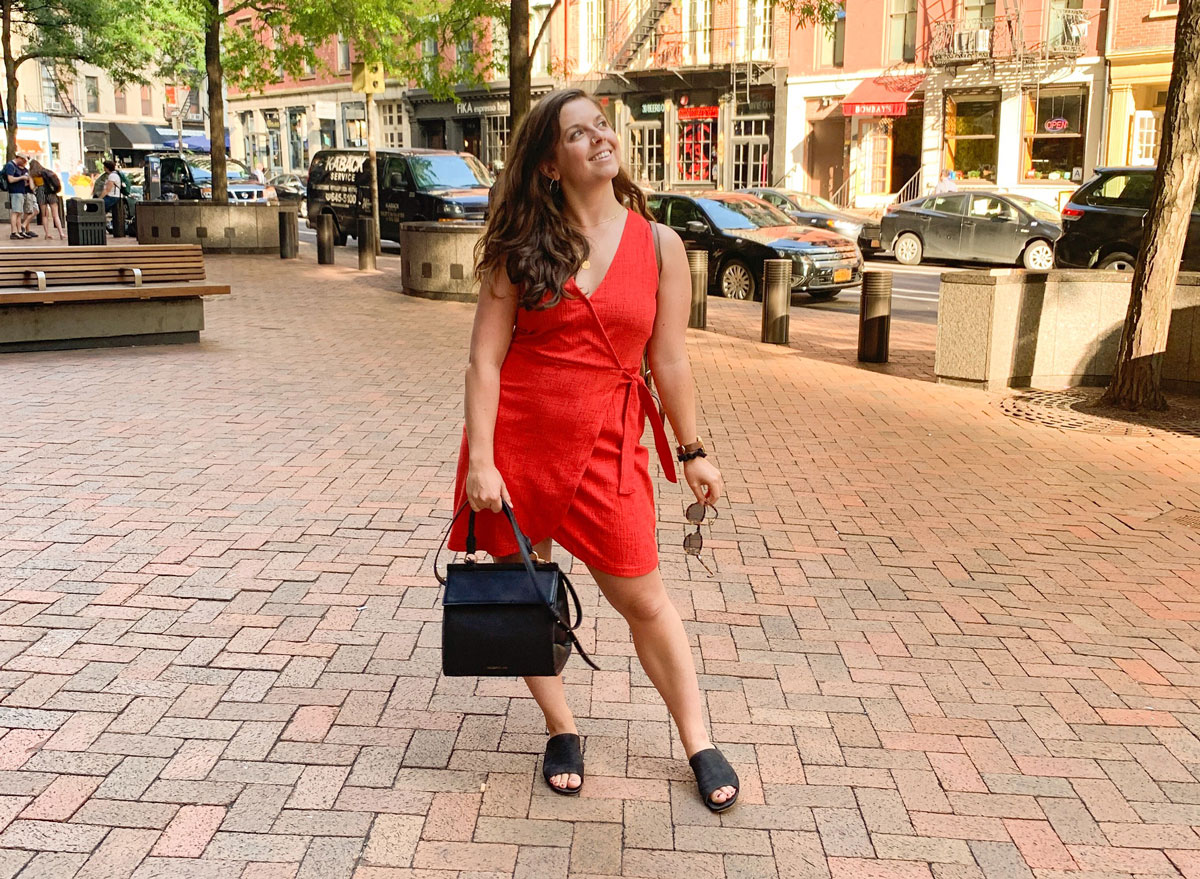
I am in no way considered stick thin. I am a curvylicious diva, and even though I could cut calories and hop right back into dieting culture to reach the "proper" weight for my height, I simply don't want to. Where I'm at feels natural and good, and I don't have the desire to try and adhere to our culture's idea of "skinny" and "healthy." Instead, I feel toned, strong, and beautiful. I now participate in workouts that I love instead of constantly doing workouts to lose weight, and if I skip a workout, I don't feel guilty. I workout to feel good, not to look good.
Now that I understand what my body needs to feel satisfied, I eat like that regularly. My plates are stuffed with roasted vegetables, cheese, and proteins, all from my "favorites" list that make me feel full and satisfied. I eat one carb a day (usually a bagel, if I can), simply because consistently eating more than that on a regular basis makes me feel sick to my stomach. But you know what? I don't deprive myself when I'm going out. Because if my husband is taking me out for a burger, you know that I'm getting a burger with some garlic fries and a nice cold glass of beer. And I don't feel one ounce of guilt the next day, because who I am no longer comes from the number on the scale or what I eat.
